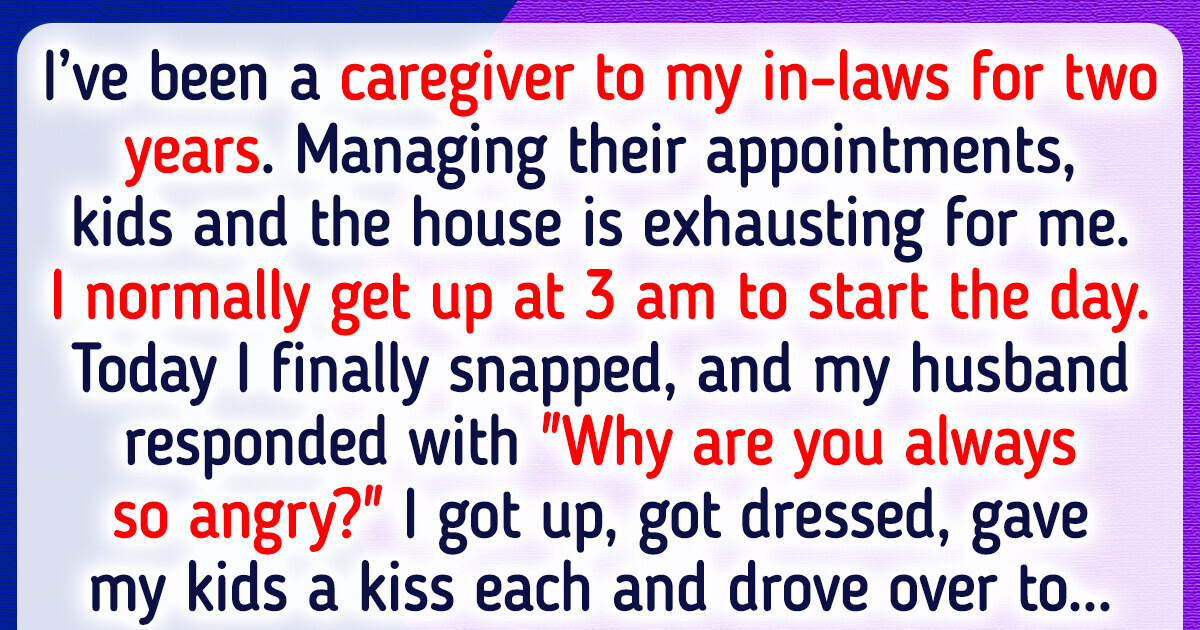It's sad that it came to this.............You need support from your husband and the other children or they need to hire it done......You need to look into house keeping, yard work and so on.
-
-
Reply

Imagine having to take full responsibility for your husband’s parents because their own children can’t. Wouldn’t you eventually walk away? That’s exactly what happened to this woman—until she uncovered what her mother-in-law had accused her of. Find out more inside.

It's sad that it came to this.............You need support from your husband and the other children or they need to hire it done......You need to look into house keeping, yard work and so on.
That’s a very tough situation to deal with, but not entirely irreparable. There are a few suggestions that might help navigate this challenging scenario.
These feelings are completely valid, and they are something many people have experienced, as demonstrated by the story we’ve shared here.











